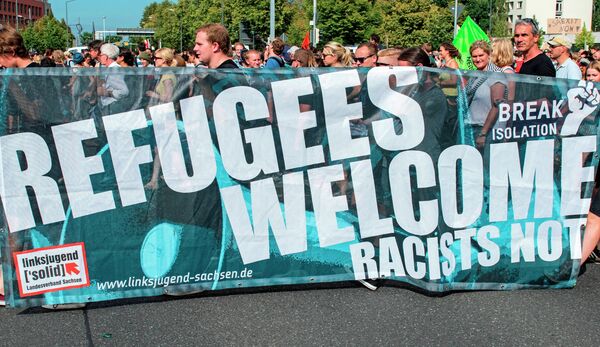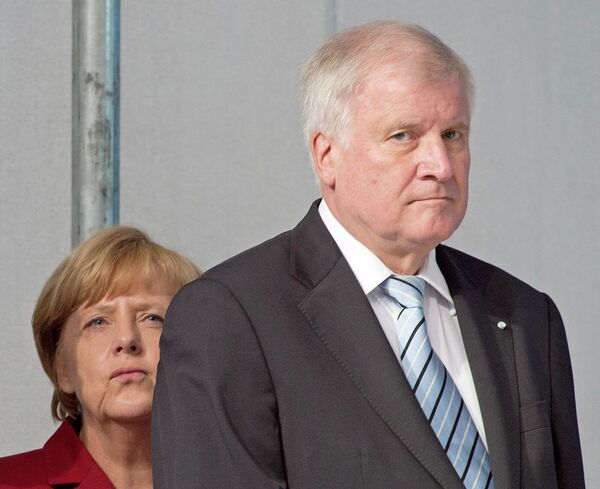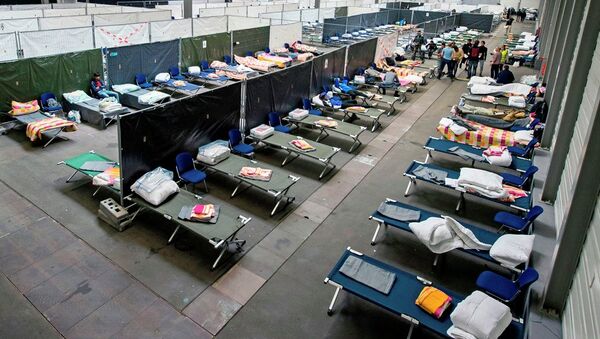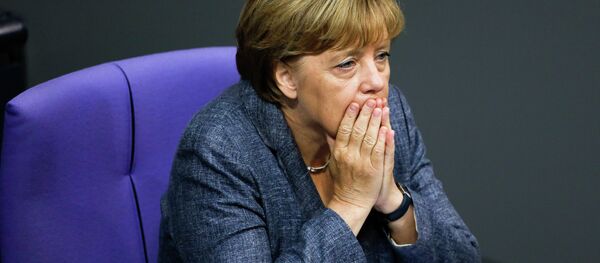Merkel has been coming under attack from some in her own ruling coalition after announcing that Germany would waive EU rules, requiring refugees to register their asylum application in the country in which they first entered the bloc.
The move has triggered a recent increase in people arriving from Syria and other war-torn countries in the Middle East and North Africa, with Germany expected to accept more than 800,000 refugees this year.

German vice-chancellor Sigmar Gabriel indicated Germany was likely to continue accepting large numbers of people, telling German media that the country "could easily cope with a figure of half a million over the coming years."
“We have more refugees in the world than at any time since the Second World War. The world’s eyes are upon us.” — Merkel, summit in Vienna
— Plaid Angela Merkel (@Plaid_Merkel) August 30, 2015
Aid agencies and activists have praised Merkel's approach, pushing for more countries to accept refugees and help ease the humanitarian strain on Germany.
'No Society' Can Cope With Those Numbers
However, this approach has proven to be unpopular with some within Merkel's own ruling coalition.

These views were shared by many of Germany's federal states, with officials arguing that the $6.7 billion (€6bn) put aside by Berlin to help fund the crisis was not enough, with some states arguing that $11.2 billion (€10bn) will be needed to address the immediate crisis.
Others, including British Prime Minister David Cameron have warned against allowing mass numbers of refugees into Europe, arguing that such an action would only encourage more people to make the dangerous voyage to Europe and wouldn't help in solving the root of the crisis.
While the German public have been praised for their warm welcoming of refugees who arrived in the country, foreign minister Frank-Walter Steinmeier warned the general public's acceptance of refugees could shift as local authorities struggle to find the resources to house people arriving in the country.
With tens of thousands of people arriving in Munich over the past couple of weeks, a large amount of the city's emergency accommodation has been filled, while there have been well documented instances of anti-immigrant violence in other parts of Germany, with some Germans unhappy with the country's refugee approach.
Concerns Over Terrorists Entering Europe
There are also major concerns among EU states that many of the people traveling from the Middle East to Europe aren't genuine refugees, amid suggestions jihadists and members of groups such as ISIL could be disguised among the influx of people.
The report in Hungary's M1 television claimed that the men were identified through social media pictures that had allegedly shown them to be supporters of terrorist groups.
"Islamist terrorists, disguised as refugees, have showed up in Europe. [The] pictures were uploaded on various social networks to show that terrorists are now present in most European cities. Many, who are now illegal immigrants, fought alongside Islamic State before," the report said.



